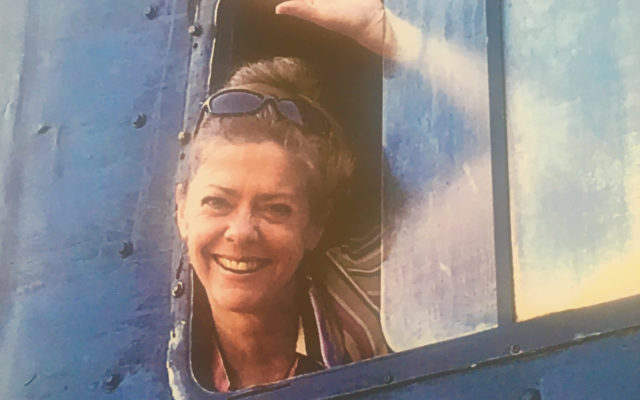
Monson woman shares highlights of aid trip to Africa
Rebekah Anderson, owner of the popular Lakeshore House in Monson, has always been a civic-minded person, and in early January, she really stretched herself by traveling to Africa to assist the organization Eagle Projects International as they disseminated medical supplies and reading glasses to tribal groups in the wilds of Kenya.
I was fascinated to know how this all came about, so the two of us sat down in her restaurant and she told me all about this life-altering trip. Eagle Projects is an international Christian ministry which, since 1989, has been going to the unreached people of the world. Dr. Philip Eyster and the organization have been going all over the world for these past 30-some years attempting to connect with unreached people. On each medical trip, thousands of medications are prepared by their team to treat ailments such as malaria, worms, infections and other diseases.

Photo courtesy of Rebekah Anderson
NEEDED SUPPLIES — Rebekah Anderson of Monson aboard a truck delivering medical supplies in Africa.
“I have known that this ministry existed for the longest time,” Anderson said. “And I always wanted to go, but truthfully, I have been a bit scared and really couldn’t get away. There just was not enough time or money — which one has to raise themselves — to go. This year I figured it was the right time and I got the funds together – I was gone for two weeks.”
She and her team, which included four people from Monson and others from all over the world, landed in Nairobi and spent two days packing up medical supplies for distribution in the remote tribal areas. “Nairobi is very big and very dirty and bustling with so much activity,” she recalled. “We stayed in a compound and were not allowed to wander alone about the city, not that I would have wanted to,” she added.
The countryside was a different matter – it was very lush and very beautiful. Anderson and the others boarded a big green safari truck and traveled cross country for 12 hours to the town of Marsabit. Once there, they hooked up with another organization, Lifeway Missions International, which selected the various villages out in the bush that they were to visit.
Dr. Aila Tasse, who is the mastermind behind Lifeway Missions, had grown up in Marsabit. There is a large Muslim population in that city and because Tasse became a Christian, he was completely ostracized by his family and he had to flee the country. He got his doctorate in the United States and met his wife Turo there as well. Eventually, he felt impelled to return to Marsabit and form Lifeway Missions. He has worked there ever since to assist all these unreached tribal villages, places that have never seen medical clinics or had medical help of any kind.
“We would go out every day from Marsabit for five days in some direction or another in the big green truck to wherever Aila and his people had set the stage for us to be welcomed and we would bring the clinic to them,” Anderson said. She was in charge of fitting the reading glasses to people who, in some cases, had never seen glasses of any kind before. “I got so much more out of it than the people we were serving did,” she said, her eyes welling with the memory. “I burst into tears the first day of the clinic, seeing the reactions of those who had not been able to see for, in some cases, their whole lives. These people had traveled for so many miles to see us and had never received medical help of any kind before.”

Photo courtesy of Rebekah Anderson
VOLUNTEERING IN AFRICA — People in Africa wait for medical supplies delivered by Eagle Projects International. Rebekah Anderson of Monson recently volunteered with the group.
She was moved to the core by these elegant tribal people, dressed in their most colorful garments, who would walk more than 12 miles, with no water or food, to be seen at the clinic. Sometimes Anderson would have a translator – more oftentimes not. The majority of the people spoke Swahili or Borana, so there was a good deal of pantomiming to get a point across. “Especially for me,” Anderson recalled. “I was putting this strange thing – the eyeglasses – on their faces.”
She was especially touched by the children, who delighted in standing close to these helpful strangers from the clinic. “They want to stay close to you because they’ve never seen anything like you — with your white skin and strange clothes,” Anderson said. “I took many pictures of one little girl because she was so fascinated with her images. She wanted to see more and more – I must have shot about 100 photos of just her,” she laughed.
Anderson was also impressed with how happy the tribal people were. “I changed in so many ways because of this experience,” she mused. “We have way too much in this consumer society of ours. These people were so different — they just oozed love. They were contented to just sit around with others in silence, not doing anything but just enjoying a loving fellowship with each other. With our always busy lives we can learn a great deal from these wonderful people.”
If you are interested in learning more about these service programs, visit them online at lifewaymi.org and eagleprojects.com.